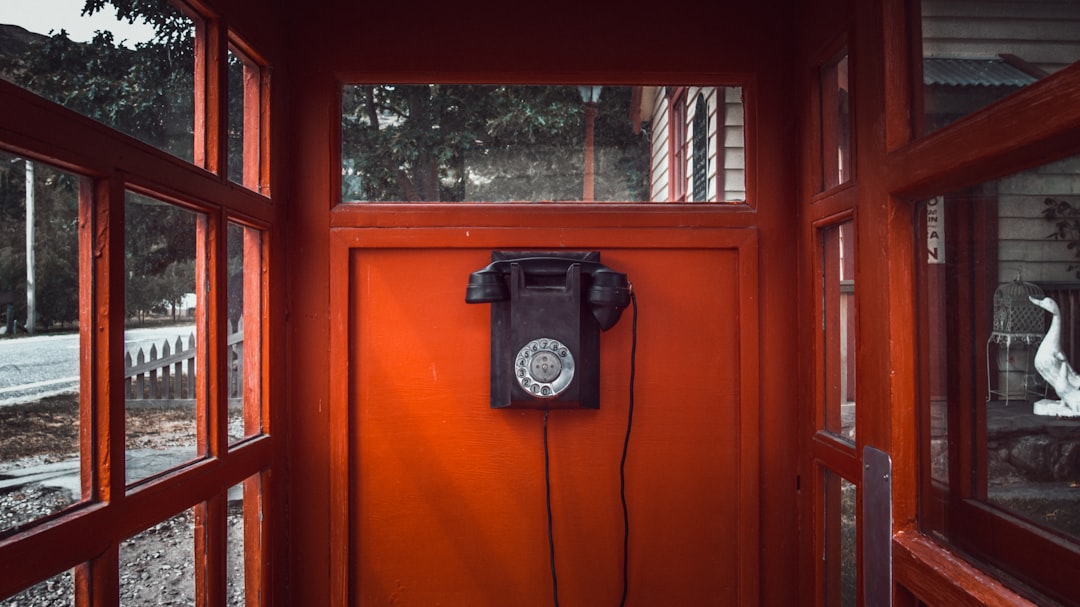In New Jersey, the "Telemarketing and Consumer Fraud Act" (Do Not Call Law) protects residents from unwanted telemarketing calls, including those from lawyers and law firms. To opt-out, individuals can register with the National Do Not Call Registry and use call-blocking features. Robocalls from law firms or attorneys using autodialers are illegal and may result in complaints to the New Jersey Attorney General's Office, which enforces the law strictly. Legal professionals offer assistance in blocking robocalls, emphasizing consent-based communication to rebuild trust with residents. Violations carry significant penalties, making it crucial for lawyers to respect client privacy and avoid unauthorized calls.
In New Jersey, the ‘Do Not Call’ laws are a crucial tool to combat unwanted telemarketing calls, including those from autodialers. This article explores the impact of robocalls on law firms and residents, while delving into the rights and responsibilities outlined in the state’s regulations. We guide legal professionals through effective strategies for compliance, covering opt-out methods, common mistakes to avoid, and the importance of consensual communication. Additionally, we outline penalties for violations and provide resources for both consumers and legal experts navigating this complex landscape, emphasizing the significance of respect for New Jersey’s ‘Do Not Call’ laws.
- Understanding New Jersey's Do Not Call Laws
- The Impact of Robocalls on Law Firms and Attorneys in NJ
- Rights of Residents: Opting Out of Unwanted Calls
- Strategies for Law Firms to Comply with Regulations
- Common Mistakes to Avoid When Making Legal Cold Calls
- Effective Communication: Building Trust Through Consented Contacts
- Enforcement and Penalties for Violations in New Jersey
- Resources for Consumers and Legal Professionals
Understanding New Jersey's Do Not Call Laws
In New Jersey, understanding and adhering to the state’s Do Not Call laws is crucial, especially when it comes to preventing unwanted robocalls from law firms or attorneys. The New Jersey Do Not Call Law, also known as the “Telemarketing and Consumer Fraud Act,” grants consumers the right to opt-out of telemarketing calls, including those from legal professionals. If you’re tired of receiving unsolicited phone calls from do not call lawyer New Jersey, robocall attorneys New Jersey, or law firms trying to promote their services, you have rights.
This law prohibits companies and lawyers, including robocall law firms New Jersey and do not call lawyers New Jersey, from making telemarketing calls to residents who are on the Do Not Call list. If you’ve registered with the state or placed a “Do Not Call” request with a specific lawyer or law firm, they are legally bound to stop calling. Should a lawyer for robocall New Jersey ignore these regulations, consumers can file a complaint with the New Jersey Attorney General’s Office, which takes such violations seriously and has the authority to take legal action against offenders.
The Impact of Robocalls on Law Firms and Attorneys in NJ
The proliferation of robocalls has significantly impacted the legal profession in New Jersey. Law firms and attorneys face a growing challenge in managing unwanted calls, particularly from automated dialers, which often violate the “Do Not Call” registries. These persistent robocalls disrupt legal practices, wasting valuable time and resources on handling unsolicited calls. As a result, many law firms are now prioritizing strategies to combat this issue, such as implementing advanced call-blocking technologies and educating clients about the importance of registering their numbers with the appropriate “Do Not Call” lists.
For attorneys in New Jersey, dealing with robocalls has become an additional layer of complexity. Clients seeking legal advice may be bombarded with automated messages, leading to potential confusion and frustration. This situation demands a proactive approach from lawyers who must now offer specialized services to address robocall concerns. By staying informed about the latest regulations regarding “Do Not Call” laws and employing effective communication strategies, New Jersey’s legal community can better protect their practices and ensure clients receive the personalized attention they deserve, free from intrusive automated calls.
Rights of Residents: Opting Out of Unwanted Calls
Residents of New Jersey have valuable rights when it comes to unwanted telephone calls, especially those from autodialers or robocalls. The state has implemented strict regulations to protect consumers from unsolicited phone marketing, giving them the power to take control of their communication preferences. One crucial step is knowing how to opt out of these calls effectively.
New Jersey residents can register their numbers with the National Do Not Call Registry, a significant first step in preventing robocalls. Additionally, many telephone service providers offer call-blocking features or specific options to filter out automated calls. For those who receive unsolicited calls from law firms or attorneys using autodialers, seeking legal counsel from a do not call lawyer in New Jersey can be beneficial. Such legal experts can guide residents on the best course of action, including sending cease and desist letters or taking more formal legal measures to stop these intrusions.
Strategies for Law Firms to Comply with Regulations
To comply with regulations regarding autodialer use in New Jersey, law firms must implement robust strategies that respect consumer privacy and consent. This includes adhering to the state’s “Do Not Call” registry, ensuring explicit permission before initiating any automated calls, and implementing caller ID technology to clearly display the firm’s contact information. Law firms should also train their staff on proper call handling procedures, emphasizing the importance of obtaining verbal consent and documenting each call for record-keeping purposes.
Additionally, employing opt-out mechanisms during the initial communication is crucial. Firms should provide a clear and concise way for recipients to register their number as ineligible for future calls. Robust tracking systems for these opt-outs are essential to maintain compliance. Moreover, staying updated on evolving regulations and seeking legal counsel regarding best practices can help law firms effectively navigate the legal landscape surrounding robocalls in New Jersey, ensuring they maintain a professional and ethical approach while reaching potential clients.
Common Mistakes to Avoid When Making Legal Cold Calls
Effective Communication: Building Trust Through Consented Contacts
In today’s digital era, effective communication between businesses and their clients is more important than ever. However, the rise of autodialers and robocalls has led to a breakdown in trust for many New Jersey residents when it comes to unsolicited contacts from law firms and attorneys. To rebuild this trust, legal professionals must prioritize consent-based communication strategies. This means ensuring that every contact with potential clients is welcomed and authorized, whether through direct permission or clear opt-in methods.
By avoiding practices like autodialing without express consent, lawyers in New Jersey can foster a culture of transparency and respect for their clients’ privacy. This approach not only helps in combating unwanted robocalls but also strengthens the attorney-client relationship from its foundation. When clients feel their trust is valued, they are more likely to engage with legal services openly and honestly, leading to better outcomes for both parties.
Enforcement and Penalties for Violations in New Jersey
In New Jersey, the Do Not Call registry is a powerful tool to protect residents from unwanted telemarketing calls, including those from autodialers and robocall attorneys. Violations of this law can lead to severe penalties for both businesses and individuals. If a caller uses an autodialer or pre-recorded messages to contact New Jersey residents without prior express consent, they are in direct violation of state regulations.
Enforcement agencies have the authority to issue fines ranging from $100 to $5,000 per violation, depending on the severity and frequency of the infraction. For robocall law firms or attorneys using these methods, it’s crucial to understand that each unauthorized call can result in significant legal consequences. Residents who experience persistent robocalls from lawyers or law firms not on their consent list are advised to report these incidents to the New Jersey Attorney General’s Office, which takes such violations seriously and works diligently to protect consumer rights, ensuring that no one is harassed by unwanted autodialed calls, especially when it comes to legal services.
Resources for Consumers and Legal Professionals
In New Jersey, consumers and legal professionals alike have resources available to combat unauthorized autodialer calls, often known as robocalls. The Do Not Call Registry is a powerful tool for individuals; by registering their phone number, they can restrict promotional calls from businesses, including those from law firms and attorneys. This registry is managed by the New Jersey Division of Consumer Affairs, ensuring compliance with state laws.
For those facing relentless robocalls from law firms or seeking representation in such cases, there are specialized legal resources. Legal professionals, such as lawyers and attorneys, can offer guidance on blocking and stopping these calls, especially when they constitute harassment or violate privacy. The New Jersey Bar Association provides a directory of members, including those specializing in consumer protection and telecommunications law, making it easier for individuals to connect with the right legal support. Additionally, the state’s Attorney General’s office offers resources and advice for residents dealing with unwanted telemarketing calls, including robocalls from law-related entities.






